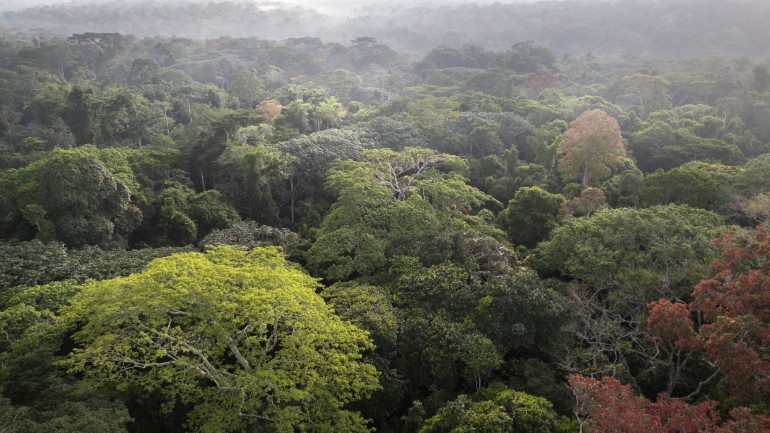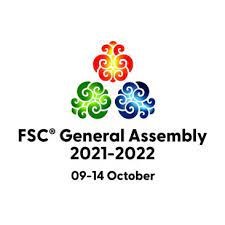

16.09.2022
In view of the next FSC General Assembly to be held from 9 to 14 October in Bali (Indonesia), the ATIBT is working to find a solution to the implementation of the motion 65/2014 on the protection of Intact Forest Landscapes (IFL).

The ATIBT has been involved for more than 2 years in the preparation of the FSC GA* to find a favorable outcome for the IFL protection of and have an impact on the FSC system.
As a reminder, Motion 65 on Intact Forest Landscapes (IFL) was approved at the FSC General Assembly in 2014 to “ensure the implementation of Principle 9 and the protection of intact forest landscapes”. The motion required the full protection of the majority (80% in principle) of the IFL area inside FSC certified forest management units (FMU) until more specific rules had been defined in national FSC Standards.
In 2019, the FSC Board of Directors approved guidance for Standard Development Groups (SDG), allowing protection levels to be at least above 50% where there is evidence that the 80% threshold is not achieving the greatest conservation gains.
However, studies conducted as part of Motion 34/2017 on the social, environmental and economic impacts of implementing Motion 65 show that, in the regions studied (tropical and boreal), only 0.6 to 7% of existing IFL are addressed through the FSC approach focusing on certified FMU; and even for this rather small portion, affected FMU have mostly expressed that they cannot maintain their commitment to FSC, if the current course is continued.
In the Congo Basin, the National Standards Development Groups (SDG) proposed indicators for the protection of IFL based on a participatory, robust and consensual process, building on the work of a regional High Conservation Value (HCV) Working Group. Among the regional indicators defined was the proposal for a 20% protection threshold of the core area of IFL in the forest concession and the application of IFL-specific reduced impact logging rules, which was rejected by FSC as not contributing to the protection of the "vast majority" of IFL.
The experience in the Amazon Basin has led to the same situation.
The requirements of the current FSC approach therefore directly undermine the economic viability of FSC-certified forest management (and indirectly the associated social benefits and environmental adequacy), particularly in tropical areas.
In order to find a solution, the ATIBT and its members have proposed several constructive motions:
- Motion 23: which calls for identifying the IFL area and its management measures through a "landscape and under the approach" with strong stakeholder engagement at the national level (through the Standards Development Groups - SDG), and for temporarily applying the national guidelines that were initially developed by the national SDG;
- Motion 19: which calls for respecting the law in the application of Motion 65, and which aims to remind that in some countries the states are the owners of the forests, and that requirements in terms of harvesting and conservation strategy must be respected;
- Motion 10: which asks to respect the proposals of the national standards development groups (SDG), clarifying the FSC decision process when reviewing and validating national standards.
In parallel, the Brazilian members presented another motion, supported by CEB Precious Woods, proposing another solution. Motion 18 calls for better inclusion of IFL in the existing HCV2 management and conservation approach, and for a temporary suspension of the current rules.
With these motions, the ATIBT and its members want to demonstrate that they fully support the conservation of High Conservation Values 2 (HCV2), including Intact Forest Landscapes (IFL) and are prepared to contribute to the best of their ability. Through this motion they want to address their concerns that the approach to HCV2/IFL conservation currently taken by FSC is deficient.
Indeed, as applied, this approach does not allow FSC-certified companies and stakeholders to contribute to the best of their ability and does not make substantial progress in conserving HCV2/IFL by focusing exclusively on the rather limited portion of IFL in FSC-certified Forest Management Units (FMU). The intent of the motions is to advance the approach to HCV2/IFL conservation, and to change the current FSC course of action by relying on the expertise of local stakeholders.
FSC-certified managers want to be part of the solution to achieve the best possible contribution to conservation of HCV2/IFL across the entire landscape, without compromising FSC’s mission to environmentally appropriate, socially beneficial and economically viable responsible forest management.
*The FSC General Assembly is usually held every 3 years. Due to Covid, the edition planned in 2020 has been postponed to 2021/2022 in two sessions:
Register to the FSC General Assembly 2022
